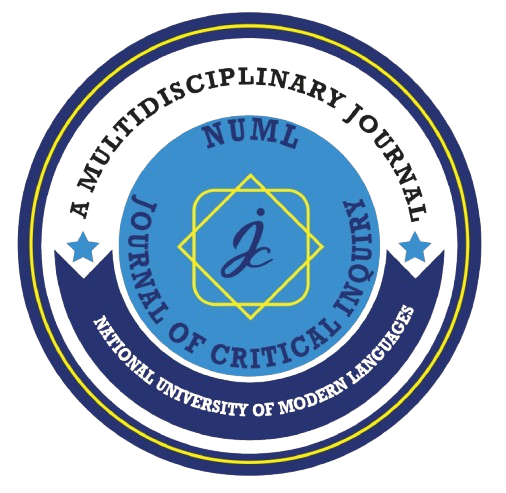‘Heavy Waters’ of Punjab: A Hydro-critical Analysis of Bapsi Sidhwa’s Ice-Candy Man
Main Article Content
Abstract
This research argues that the seminal Partition novel Ice-Candy Man, written by Bapsi Sidhwa, presents a vision of fluvial Punjab in a manner that fits the idea of “Heavy Waters” presented by Elizabeth DeLoughrey. The latter’s idea of water carrying both physical and metaphysical waste seems to materialize in Sidhwa’s novel, who places her story in the context of the partitioned Punjab of 1947, when a desire for ‘territorialism’ over water resulted in countless human beings turning into ‘national refuse’, or people killed in the name of nationality, whose dead bodies floating in the rivers of the Punjab turned the rivers into both a haunting site and a site foreboding an environmental crisis sooner or later. Hydro-criticism emerges as an apt theory to carry out this research, considering the tools it provides to look at literary texts from a watery perspective, while the research methodology involves a close textual analysis, with specific focus on events pertaining to water in the novel. The study concludes that a) If Elizabeth DeLoughrey’s hydro-critical lens can aid in understanding the pain of Middle Passage victims and the defiling of the Atlantic Ocean, the same theory may help read indigenous texts to pay tribute to Pakistan’s water bodies, and b) If Atlantic modernity is metallic due to the residue it carries of British naval weaponry, then overt sexual activity taking place in Pakistan and India can be linked to the ample flesh that lies in the waters of the Subcontinent.
Conflict of interest:
The author has declared no potential conflicts of interest with respect to the research, authorship, and/or publication of this article.






